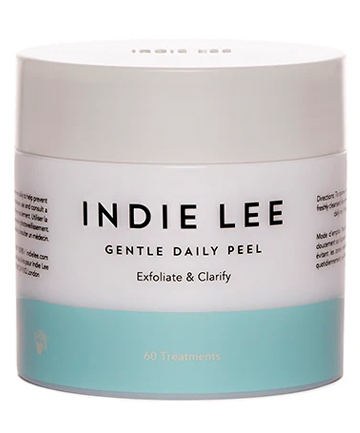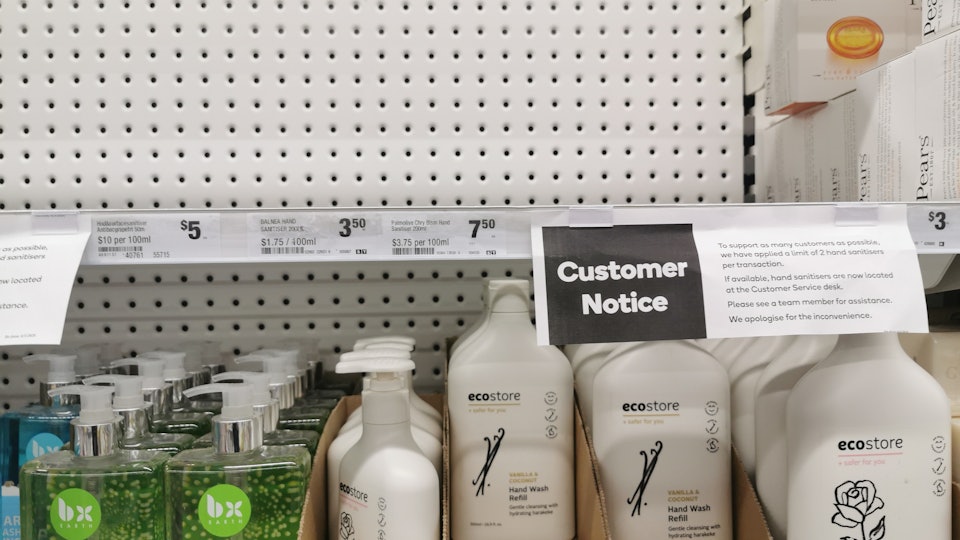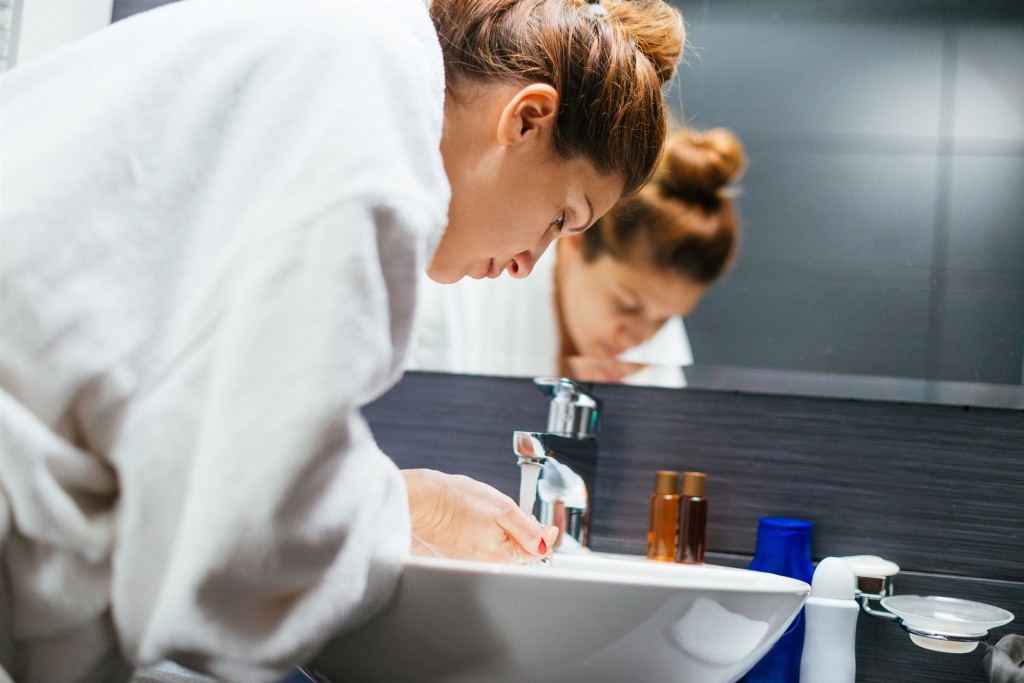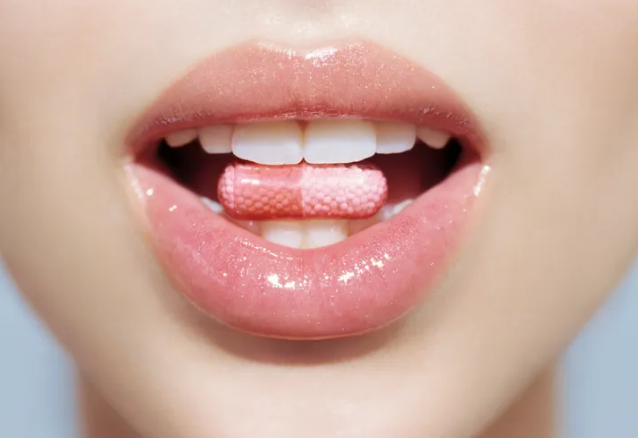Again, one day is the ideal. A maximum of four days is a good metric to follow, advises Dr. Peterson Pierre, a board-certified dermatologist in California.
“You can go about three to four days in your sweats or loungewear before washing them,” Pierre says. “Any longer than that, and oils, bacteria, dander, and sweat can accumulate, leading to itchy skin and even an acne flare. It’s important to wash your favorites about twice a week even if you’re not leaving the house.”
Continue reading →

Dr. Alexander Rivkin, the founder of Westside Aesthetics, who specializes in non-surgical procedures, has decided to close his office until further notice and do consultations via Skype or FaceTime. “We are not making house calls because that really goes against the whole point of social distancing and shelter in place,” he says, noting that a house call potentially exposes the provider or the patient to the virus.
“The U.S. still has extremely limited testing for COVID-19 and we have yet to see the kind of organized, effective government measures that are curtailing the epidemic in China,” he says. “The federal response to this threat has been abysmal. As the leading global superpower, we should have implemented universal testing weeks ago and we should currently be running coronavirus isolation field hospitals.”
Rivkin believes the U.S. should have ramped up ventilator production two weeks ago, along with implementing a shelter-in-place policy. “Instead, we are on the same infection curve as Italy and headed for an overwhelmed medical system. Social distancing is our only hope right now to buy time as we race to develop a treatment and a vaccine.”
Continue reading →

If you’ve ever run a long distance, taken an intense hot yoga class, come down with the flu, or, ahem, woken up with a hangover, you’ve likely reached for an electrolyte drink. That’s because the electrolytes in that bottle of Gatorade can supply your body with essential minerals that retain water and rehydrate you.
Now, imagine if there was a hydrating helper like that but for your skin! Pipe dream? Nope–very much a reality. Introducing electrolyte skin care, the newest beauty trend that’s all about applying electrolytes topically to reap similar benefits for your skin.
All electrolytes, whether from coconut water or coconut water-based moisturizer, work the same. Electrolytes–including magnesium, calcium, potassium, sodium, chloride, and phosphate–conduct electricity when mixed with water, says Peterson Pierre, M.D., a dermatologist at Pierre Skin Institute in Thousand Oaks, California. If you’re thinking electricity in the body sounds futuristic (or dangerous), have no fear. Electrical currents are naturally present in the body and electrolytes are essential to the functions of cells and organs.
Continue reading →

Retinol and alpha and beta hydroxy acids (aka AHAs and BHAs) are probably the MVPs of your skin care regimen, since they work overtime to keep fine lines and discoloration at bay. But can they be mixed?
“These ingredients on their own can be very beneficial, but using them together is a no-no,” says board-certified dermatologist Dr. Peterson Pierre, MD. “You significantly increase your chances of irritation, redness, flaking without providing any additional benefit.”
To avoid any adverse reactions, Dr. Pierre advises introducing one product at a time to assess tolerability. Once that is established, you can then use your AHA/BHA product in the morning, and your retinol in the evening.
Continue reading →
:max_bytes(150000):strip_icc():format(webp)/promo-9773668748164e6b91225a273f1c0eb8.jpg)
If you’re noticing that your skin is on the drier side, and you feel your eyes are dry and unable to produce tears, then beware of a vitamin A deficiency. “Difficulty seeing in dim light (also known as night blindness) is another issue,” says Dr. Peterson Pierre, MD, a cosmetic dermatologist based in California. He suggests adding meats, dairy, eggs, as well as red, yellow, orange, and green plant foods to your diet.
Continue reading →

As store shelves keep getting cleared out due to coronavirus fears, some people are taking sanitizing concerns into their own hands. What are the best DIY hand sanitizer options, and what do the experts want you to know about these homemade recipes? In general, you’ll want to save that bottle of Absolut for your drinks, not your cleaning products.
When making your own, “your sanitizer must be at least 70% alcohol to be effective,” dermatologist Peterson Pierre, M.D., of the Pierre Skin Care Institute tells Romper. Honestly, making the stuff on your own can be a bit tricky. “Though it might be tempting, as hand sanitizer has become unavailable in many stores and pharmacies as consumers rushed in to stock up, it’s not as easy to make an effective hand sanitizer as it sounds,” Dr. Gabriella Baki, Ph.D., Pharm.D., assistant professor of pharmaceutics at the University of Toledo, tells Romper. Not all DIY sanitizer recipes are equally effective at killing off microbes.
Continue reading →

It seems to depend on who you ask. Cleaning expert and national spokesperson for the American Cleaning Institute, Brian Sansoni, says that the idea that homemade sanitizers can effectively protect against illness is “highly suspect.” He continues, “The producers who make these products follow formulas. If you’re at home, nothing guarantees that you’ll get the product formulation just right.” Dermatologist Peterson Pierre, MD agrees, saying, “If you have a choice, you are better off buying sanitizer from a store because they’ve been made in large volumes, they’re reliable companies, they’ve been doing this for a long time, they have the right formula, and it’s consistent.”
Continue reading →

Generally, a third washing is okay, but only if you’ve “just come from a sporting event where you sweat a lot, or if you’re wearing a lot of makeup [ahead of going to the gym] and would prefer not to deal with that while working out,” says Dr. Peterson Pierre, MD, a dermatologist in Thousand Oaks, California.
Apparently, overwashing your face is a thing — but your skin will likely let you know if you’re doing this via breakouts, dryness or irritation.
Continue reading →

The coronavirus scare has many people on edge, but overreacting and not doing simple things is your biggest enemy according to Dr. Peterson Pierre, M.D. of the Pierre Skin Care Institute in Thousand Oaks, California.
Our forums have a lot of chatter about this virus making the news. He shared exclusive wellness tips and advice for our readers who may have concerns about shortages and staying well.
The CDC even used a popular TV series, The Walking Dead, as advice to people to observe habits to ward off any exposure.
“Everyone is panicked about the current coronavirus scare. Most people who get infected will recover without any medical intervention. Many will be affected but have no symptoms. A minority, typically the elderly and those with other medical conditions, may become very sick and a certain number will die, similar to what happens with the regular flu that we face every year.”
Continue reading →

Whether internal or topical, Pierre said that medications can be another sneaky culprit behind your skin care woes. Certain medications, he explained, can cause irritation to your skin, making it important to talk to your doctor (or dermatologist) if this is of concern.
“Certain medications can stimulate oil production and acne, while others can cause rashes and red, dry, irritated skin,” he said. “This may require an adjustment to those medications, and certainly a change in the products you use.”
Continue reading →



:max_bytes(150000):strip_icc():format(webp)/promo-9773668748164e6b91225a273f1c0eb8.jpg)




